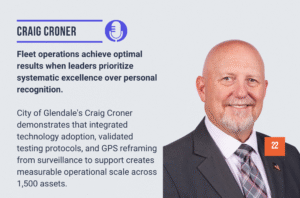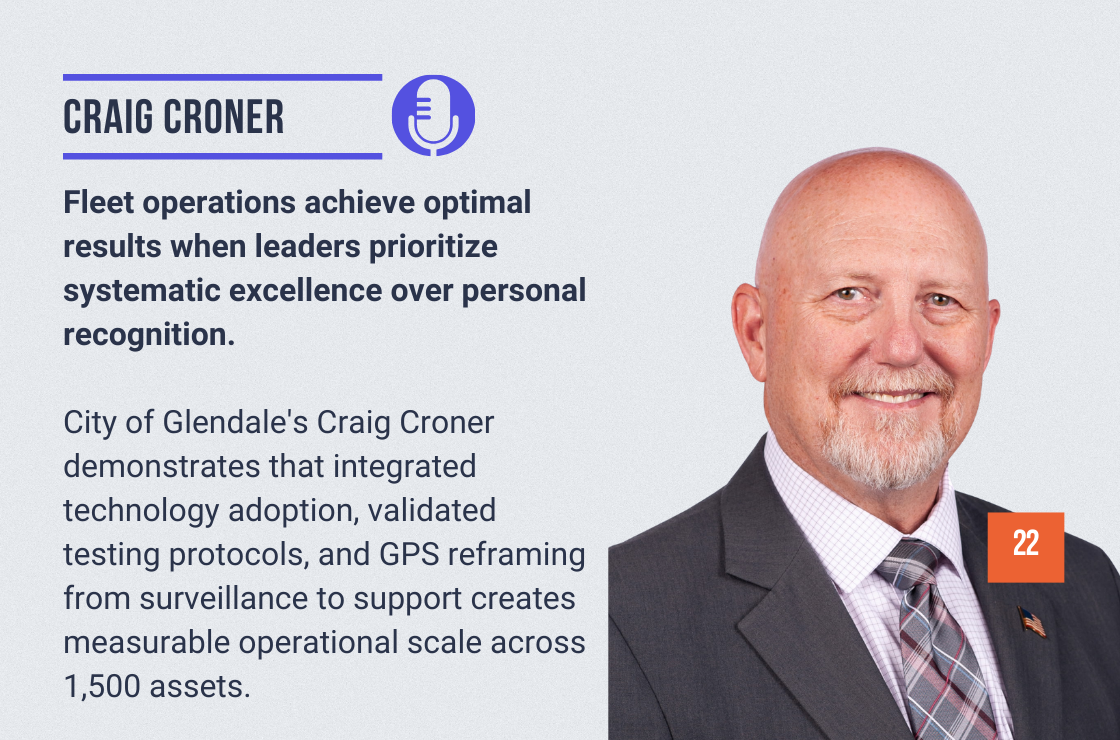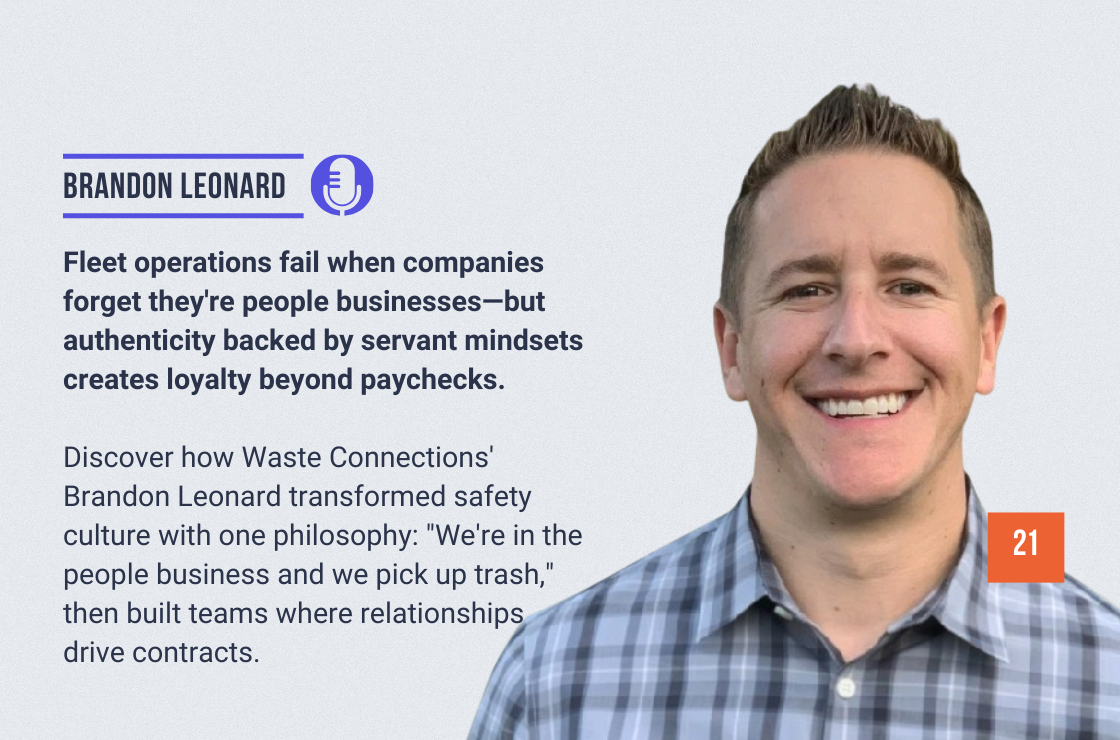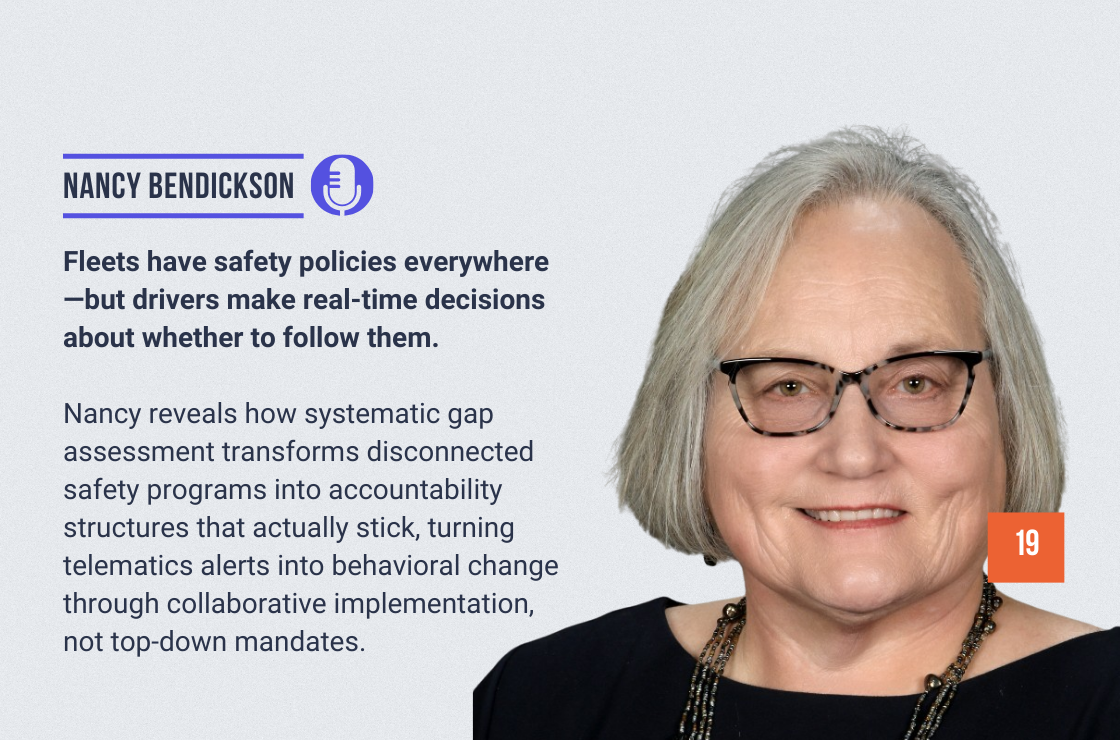How to Shift Your Team from Fear-Based Compliance to Performance-Focused Coaching
Fleet supervisors stand at a critical crossroads in today’s safety-first transportation landscape. On one side is the traditional enforcement model—rule-heavy, reactive, and fear-based. On the other hand, there is a modern, proactive approach rooted in coaching, communication, and accountability.
If your team is only compliant when you’re watching, you’re not running a safety program—you’re managing a compliance illusion.
This article examines the crucial distinction between coaching and policing in fleet supervision—and provides actionable insights to help leaders become performance multipliers, not morale destroyers.
The Problem with Policing: Fear Is Not Sustainable
Fleet supervisors who rely on enforcement tactics often face short-term results—but long-term problems. Here’s why:
- Drivers hide mistakes to avoid punishment
- Morale suffers, leading to burnout and turnover
- Coaching moments are missed, and risky behaviors repeat
- Supervisor-driver relationships break down, replacing trust with tension
In short, fear-based leadership may enforce rules, but it kills culture.
Coaching vs. Policing: What’s the Real Difference?
Coaching vs. Policing: Leadership Comparison
| Approach |
Policing |
Coaching |
| Tone |
Directive and punitive |
Supportive and constructive |
| Goal |
Enforce rules |
Build skill and confidence |
| Feedback |
Reactive after an error |
Ongoing and proactive |
| Tools |
Warnings, write-ups, penalties |
Data, discussions, driver-led goals |
| Results |
Compliance under observation |
Ownership and improved performance |
When coaching is the norm, safety becomes intrinsic—not imposed.
When coaching is the norm, safety becomes intrinsic—not imposed.
Why Coaching Works in Fleet Operations
✅ 1. Improve Safety Without Surveillance
Drivers who understand why behaviors matter are more likely to internalize them—reducing the need for constant monitoring.
✅ 2. Lowers Turnover
Drivers who feel respected and supported by leadership are more likely to stay. Coaching builds connection and trust.
✅ 3. Builds a Performance Culture
Coaching helps drivers take ownership of their role in fleet success. They start to see themselves as professionals, not just operators.
✅ 4. Turns Telematics into a Tool—not a Threat
With coaching, telematics data becomes a conversation starter—not a “gotcha” report. Drivers learn from their metrics instead of resenting them.
Coaching in Action: A Fleet Supervisor’s Playbook
You don’t need to become a therapist or soft-spoken motivational guru to coach well. You need consistency, curiosity, and a shift in mindset.
Here’s your leadership playbook:
- Lead with Purpose, Not Policy
Instead of saying something like:
“You were speeding again on Route 12.”
Try instead:
“I noticed some high-speed sections on Route 12. Let’s look at why that might be happening—and what we can do about it.”
Why it works: This removes blame and opens the door to problem-solving.
- Use Data to Ask, Not Accuse
Share telematics reports in one-on-one sessions, and frame them with curiosity:
- “What do you notice here?”
- “Was this route particularly stressful?”
- “How can I support you in improving this trend?”
- Create Micro-Goals Together
Set short, achievable safety or performance goals (e.g., reduce harsh braking events by 25% in 2 weeks). Celebrate wins and progress—not just perfection.
- Run Monthly Coaching Touchpoints
Replace or supplement disciplinary check-ins with 15-minute coaching sessions that include:
- Performance review
- Behavior discussion
- Support or resource offering
- Driver-led feedback
- Equip Supervisors to Be Coaches
Don’t assume every supervisor knows how to coach. Provide training on:
- Motivational interviewing
- Feedback framing
- Psychological safety
- Empathy in leadership
Remember: good drivers can still quit bad managers. Invest in your leadership layer.
Real-World Impact: Coaching Drives KPIs
Companies that adopt a coaching-first safety strategy report:
- 30%+ reduction in harsh driving incidents
- Improved CSA scores
- Stronger retention in year 1 drivers
- Higher engagement in safety meetings and training
And perhaps most importantly, they build a fleet culture where drivers look out for each other—not just look over their shoulder.
Final Thoughts: Coaching Is the Future of Fleet Supervision
The days of barking orders and writing people up are over—at least for fleets that want to thrive. Today’s drivers expect more from leadership. And the data is clear: coaching delivers better safety, stronger relationships, and lower turnover.
So here’s the challenge: Don’t just enforce compliance. Inspire performance.
Because when supervisors coach instead of police, fleets move faster, safer, and farther—together.











